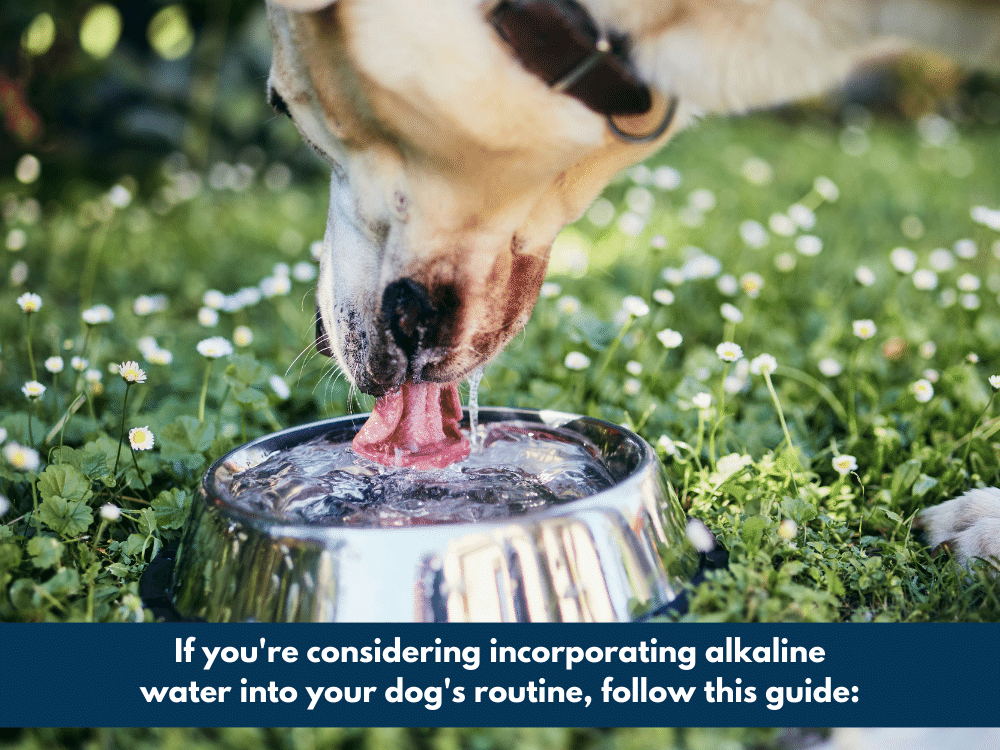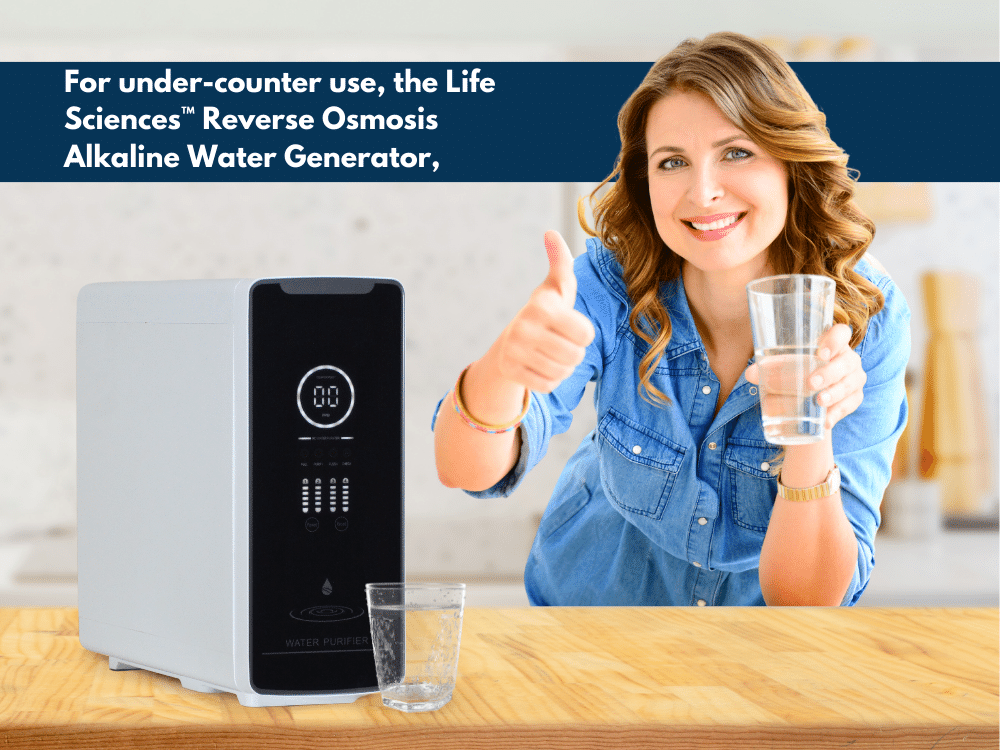Ensuring the good health of our cherished pets extends beyond mere dietary considerations to encompass their water intake. A critical aspect gaining prominence is water’s pH level, particularly its alkalinity. In this comprehensive guide, we explore the recommended pH levels for cats and dogs, potential hazards, and the paramount role of consulting veterinarians.
The pH Range for Pet Wellness
For our feline and canine companions, maintaining slightly alkaline mineralized water within a pH range of 7.0 to 8.5 is generally advocated. It’s crucial to understand that pH is logarithmic; thus, a pH of 8.0 is ten times more alkaline than 7.0, and 9.0 is a staggering 100 times more alkaline. Elevating pH through mineral treatment reduces acidity.
Beyond pH: Water Quality Matters
While pH is pivotal, water cleanliness and quality are equally crucial. Investing in a dependable water purification system, such as Life Science’s Bio Energy Water Purifier or Reverse Osmosis Alkaline Generator, ensures your pet’s water remains uncontaminated, safeguarding their health.
Check your water quality for contaminants and get a free report on your water quality. click here
Safety Considerations for Alkaline Water
Life Ionizers®, creators of alkaline water filters, say dogs can generally consume alkaline water. Caution is advised in specific situations:
1. During or After a Meal
Consuming alkaline water during or after a meal can neutralize stomach acid, potentially interfering with medication absorption or digestion.
2. While Being Nursed
Avoid giving alkaline water to nursing dogs to prevent potential impacts on digestion or nutrition.
Excessive alkalinity, especially with a pH significantly surpassing 8.5, can pose risks, leading to gastrointestinal upset and other health issues. Introduce changes gradually to allow your pet’s digestive system to adapt smoothly.

Risks and Consultation
While minimal risks are associated with alkaline water to dogs, consulting your vet is imperative, especially if your pet has underlying health conditions. Concerns exist about potential impacts on urine pH, affecting the risk of kidney or bladder stones, particularly for dogs with pre-existing kidney conditions.
Sharing information and seeking your vet’s opinion ensures a balanced approach, considering both scientific principles and your pet’s unique requirements.
Alkaline Water: A Health Boost for Pets
Can alkaline mineral water offer similar health benefits to dogs as to humans? The answer is yes. Cats and dogs can safely consume Kangen water, thanks to its alkalinity.
Health Benefits
Pet owners can attest to the positive effects of alkaline water on their dogs, suggesting a reduced risk of acidity-related health problems like bladder or kidney infections. Scientifically proven benefits include reduced inflammation, a boosted immune system, increased energy, a healthier coat, and improved overall well-being.
1. Hydration Enhancement
Alkaline mineral water, with its negatively charged molecules, facilitates better cell absorption, promoting superior hydration and cellular detoxification.
2. Odor Neutralization
The elevated pH can neutralize odors, potentially reducing the unpleasant smell of dog waste.
3. Antioxidant Properties
Containing antioxidant minerals like magnesium and calcium, alkaline mineral water helps combat oxidative stress and reduce damage from free radicals.
Scientific Scrutiny
Support for alkaline mineralized water’s ability to enhance hydration is compelling, backed by numerous scientific peer-reviewed studies validating its benefits. Combining these attributes with Aquaporins’ remarkable transport medium results in superior hydration and detoxification.

Introducing Alkaline Water to Your Pets
If you’re considering incorporating alkaline water into your dog’s routine, follow this guide:
1. Choose a Pet-Friendly Filtration System
Opt for a water filtration system like a reverse osmosis system or a five (5) filter system, producing alkaline mineral water.
2. Gradual Transition
Introduce alkaline water gradually, mixing it with your dog’s current water source. Increase the ratio over several days to allow adaptation.
3. Monitor Your Dog’s Response
Observe for signs of gastrointestinal discomfort, behavioral changes, or alterations in water consumption.
Can Dogs Drink Filtered Water?
Yes, dogs can safely drink filtered water. Devoid of impurities like chlorine and sediment, filtered water offers a preferable option for pets. Employing filtration systems, such as faucet or pitcher filters, ensures the removal of contaminants that impact taste and odor.

Elevate Your Pet’s Hydration Experience
Upgrade your pet’s hydration experience with the Life Sciences™ Reverse Osmosis Alkaline Water Purifying Generator. Priced at $597, this cutting-edge system removes up to 98% of contaminants, ensuring improved hydration, enhanced energy levels, and digestive health for your pets. Click here to explore more.
For under-counter use, the Life Sciences™ Reverse Osmosis Alkaline Water Generator, priced at $697, efficiently removes contaminants, creating mineralized alkaline water with over 40 health benefits. Visit here for more details.
The Life Sciences™ Hydrogen Alkaline Bio Energy Water System, priced at $697, employs a 5-stage filtration process to remove impurities and enhance water quality. Explore here for additional benefits.
Bonus
For a limited time with these Life Sciences Systems, enjoy a free Borosilicate Glass Water Pitcher with Infuser. This will add versatility to your alkaline water experience. Click here for the offer.
Conclusion: Prioritize Your Pet’s Health
Maintaining our pets’ health and happiness requires thoughtful decisions, and water quality is no exception. Striking a balance between recommended pH levels, veterinary advice, and reliable purification systems ensures that our furry friends receive the care they deserve. Pet health should always be at the forefront of health-related decisions.
Visit our website Life Water Report now to discover the right solution for a happier and healthier life for your furry companion!
